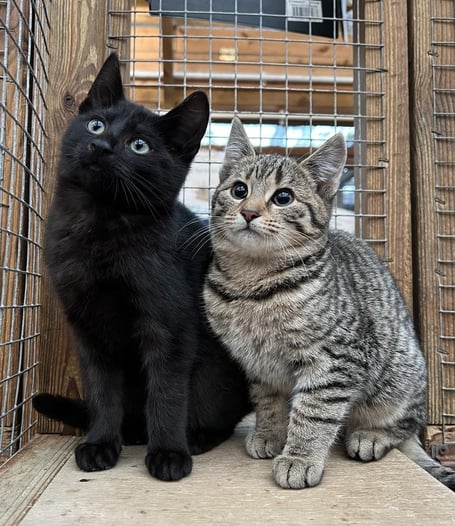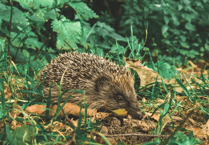We completely agree with the Dogs Trust’s long-held mantra that a ‘Dog is for life, not just for Christmas’ and extend this to include cats, rabbits, in fact, any animal.
Giving a pet as a present may seem like a good idea, and it can be if the recipient is fully aware of the gift they are about to receive (and they have done their homework on the species, and they are prepared to make a long-term commitment for the lifetime of that animal), but a ‘surprise’ puppy or kitten is often an ill-conceived idea.
We have taken a fair few phone calls over the last few weeks asking if we have any puppies of kittens for re-homing, with some callers openly stating that they are looking for Christmas presents. So, we’re very careful with our adoption process and tend to hold off on any adoptions at this time of year.
That said, we fully appreciate the joy that a young animal can bring, especially at Christmas when there’s so much going on in many households. Who couldn’t fail to be charmed when a kitten climbs up into the Christmas tree, or a puppy sees snow for the first time?
However, some behaviours can test the patience of an owner. Biting is one of them, but it’s important to understand why puppies and kittens bite and that it’s a normal phase of their natural development. However, if it’s not addressed correctly at an early stage, it can develop into a more significant issue in adulthood.
Why do puppies and kittens bite?
Exploration: they find out about their world using their mouths as one of their primary senses; and teething can lead to biting as incoming teeth cause discomfort.
Hunting instincts: prey drive is a natural behaviour, and biting is a key component of the ability to catch and kill quarry. Puppies and kittens will practice these skills on moving objects, not least human hands and feet.
Play: this is an essential part of mammalian development, and siblings often explore play boundaries together and learn what is too rough (which is why we prefer to rehome kittens in pairs).
Fear: biting could be a defensive behaviour, and even though a young animal may seem fearless, new experiences can be scary.
It is crucial for an owner to prevent painful play and unwanted biting. Pet toys and games can help a young animal redirect their biting away from human hands and feet, but it is also important for the human to disengage as soon as the unwanted behaviour starts. This teaches the puppy or kitten that biting leads to the end of fun.
When fear is the cause of biting the owner should remove the cause of the stress if possible, and introduce the young animal to new experiences gradually. They should also ensure that their pet has somewhere to hide, whether that’s inside a puppy crate or under a big blanket.
Never punish a young animal for biting - just try to manage the situation and create a stimulating and safe environment.
Which is exactly what Flounder and Scuttle will be looking for in the New Year. They are slightly older kittens at five months old – Flounder is a black male, and the more confident of the two, and Scuttle is a tabby female. They are very playful and full of character, although they can be nervous with new people.
All of our rescue animals will enjoy special treats over the festive period, and they have their own Christmas stockings hanging outside their pens, although there’s no substitute for them being in a loving family environment.





Comments
This article has no comments yet. Be the first to leave a comment.